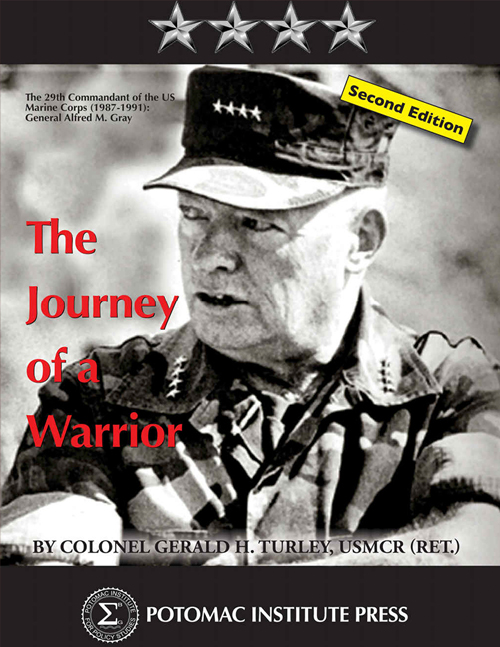 The Potomac Institute Press is pleased to announce that The Journey of a Warrior: The Twenty-Ninth Commandant of the U.S. Marine Corps (1987-1991): General Alfred Mason Gray, Second Edition by Gerald H. Turley is now available. Click here to purchase the paperback and Kindle versions.
The Potomac Institute Press is pleased to announce that The Journey of a Warrior: The Twenty-Ninth Commandant of the U.S. Marine Corps (1987-1991): General Alfred Mason Gray, Second Edition by Gerald H. Turley is now available. Click here to purchase the paperback and Kindle versions.
"The Journey of a Warrior" tells the inspiring story of a truly unique Marine who became a brilliant combat leader and achieved international prominence. General Alfred Mason Gray, US Marine Corps, was a loner by nature, and many of his peers considered him to be a maverick. At the same time, having established himself as a military intellectual of remarkable insight, he became an icon to service personnel of all ranks, as well as many prominent defense officials, politicians, and scholars. General Gray was a critical force behind the changes needed to prepare Marines for the new millennium. He is now recognized as one of the finest Commandants in fifty years. The Journey of a Warrior brings to the fore the journey of a most unusual individual: a warrior, a leader, a thinker, and a patriot. lt is not written as a biography but rather as a retrospective of a unique marine whose impact on his institution was both untraditional and perhaps under appreciated. The Marine Corps is better for his unselfish and dedicated journey to faithfully serve his country.
Brigadier General Edwin H. Simmons, USMC Retired, Marine Corps Historian Emeritus, appears to have best captured General Gray’s character when he wrote, “General Al Gray is imaginative, iconoclastic, articulate, charismatic, and compassionate. His Marines love him.”
About The Author
Now retired, Colonel Gerald H. Turley, US Marine Corps, enlisted during the Korean War, served two tours in the Vietnam War, was wounded in action, and received thirteen personal combat decorations. He served as a special consultant to two Secretaries of the Navy and six Marine Corps Commandants from 1987 to 2010. He and his wife, Bunny, reside near Hilton Head, South Carolina. He is also the author of "The Easter Offensive: Vietnam, 1972."
About The Potomac Institute
The Potomac Institute for Policy Studies is an independent, 501(c)(3), not-for-profit public policy research institute. The Institute identifies and aggressively shepherds discussion on key science, technology, and national security issues facing our society, providing in particular, an academic forum for the study of related policy issues. From these discussions and forums, we develop meaningful policy options and ensure their implementation at the intersection of business and government. For further information see www.potomacinstitute.org.
The Potomac Institute is Pleased to Announce the Release of:
It's the Ideology: How to Defeat Islamist Terrorism Once and for All
by David M. Eneboe
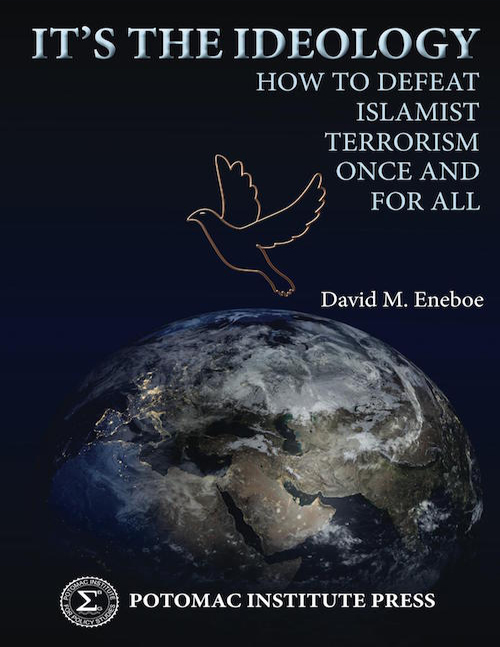
The terrorism embraced by the likes of Islamic State and Al-Qaeda emanates from their common Islamist ideology of hate and intolerance. Kill that ideology and we kill the terrorism that it breeds. But, we cannot kill ideas with bombs and bullets – we can only kill them with better ideas. And since the handful of Al-Qaeda extremists who first attempted to target US interests in 1992 has now grown to over 30,000 in Islamic State alone, what Washington has been doing clearly has not been working. Our strategic victory against Islamist terrorism is all but certain; the only variable in the equation is the human and material cost from our policy missteps and mistakes. Yet even after a quarter century of conflict, Washington still does not have a solid strategy for winning the war against Islamist terrorism. It’s the Ideology offers what our leaders have not – a fresh, bold, and clear six-step plan to muzzle our enemies; win the information war; turn failing states around; be smarter in our use of military force; substitute failed conventionalism with bold, twenty-first century approaches; strip Islamism of any religious legitimacy; and, ultimately, prevent future generations of terrorists. This book delivers a specific, real-world strategy to permanently defeat Islamist terrorism once and for all. This is a book about victory. It is a roadmap for restoring America’s global statesmanship and leadership written by a fresh voice with an experienced perspective.
Paperback and Kindle now available on Amazon.
About the Author
David M. Eneboe graduated from the 47-week Arabic language course at the prestigious Defense Language Institute as a young Marine in December 1975. He graduated at the top of his class, with honors, and in the four decades since that achievement, he has had ample opportunities to apply his education. Following language training, Mr. Eneboe received technical training in the signals intelligence (SIGINT) field as a Voice Intercept Operator (the Marine Corps now calls its language graduates Cryptologic Linguists). He was subsequently assigned to 2nd Marine Division, Force Troops, 2nd Radio Battalion at Camp Lejeune, NC. Consistent with the expeditionary nature of the Marines, Mr. Eneboe was continuously deployed domestically, abroad, and aboard ship for nearly the entire period of his assignment to the battalion. After his honorable discharge from the Marines, Mr. Eneboe’s position required him to routinely brief Senior US Officials, such as Ambassadors and cleared members of visiting Congressional Delegations. Mr. Eneboe was certified in Arabic as a Language Analyst in 1990 and he was awarded numerous honors and citations, including an NSA Letter of Appreciation for his contributions during Desert Shield/Desert Storm, and a Most Valuable Player award from his component. In the early nineties, the author returned to the United States after an unexpected tragedy made family considerations a higher priority. He founded Sahara Consulting Services and began working as a contract Arabic linguist for the intelligence community and that relationship grew to include various special projects and collection/reporting responsibilities focused on counterterrorism and counterproliferation. He was instrumental in pioneering early Internet research tradecraft and received a personal commendation from the Director of the Foreign Broadcast Information Service (now the Open Source Center) for his work on Mideast counterproliferation. In addition to his work for the intelligence community, Mr. Eneboe also provides translation and other services to commercial clients. In his leisure time, he is an active pilot and aircraft owner who enjoys flying for charitable and humanitarian causes. He and his wife live and work in Arizona.
About the Potomac Institute
The Potomac Institute for Policy Studies is an independent, 501(c)(3), not-for-profit public policy research institute. The Institute identifies and aggressively shepherds discussion on key science, technology, and national security issues facing our society, providing in particular, an academic forum for the study of related policy issues. From these discussions and forums, we develop meaningful policy options and ensure their implementation at the intersection of business and government. For further information see www.potomacinstitute.org. Media inquires please contact: This email address is being protected from spambots. You need JavaScript enabled to view it., 703-525-0770. Follow us on Twitter: @PotomacInst
The Potomac Institute is Pleased to Announce the Release of:
AL GRAY, MARINE
The Early Years, 1968-1975, Volume 2
by Scott Laidig

The Potomac Institute Press is pleased to announce that AL GRAY, MARINE: The Early Years, 1968-1975; Volume 2 by Scott Laidig is now available in paperback and Kindle versions from Amazon.com.
Most people know General Al Gray as the 29th Commandant of the Marine Corps. His achievements as a transformational Commandant are legendary within the Marine Corps and the military services. The "Al Gray, Marine" series tells the story of this unique and charismatic leader.
Al Gray, Marine: The Early Years 1950-1967, Vol.1 tells the story of General Gray's time as an enlisted Marine and junior officer. Volume 2 tells the story of his time as a field grade officer, including his important role in the Vietnam War.
From establishing innovative intelligence operations in Vietnam, through his leadership during the evacuation of Saigon in 1975, Al Gray's story is exceptional. A unique, charismatic leader, he built a reputation as a tough but fair commander of infantry units, and through the challenges of drug use and racism in the Marine Corps in the 1970s.
This authorized biography is a fascinating personal account of a Marine Corps legend. Scott Laidig was awarded the Marine Corps Heritage Foundation's esteemed Colonel Joseph Alexander Prize for Best Biography of the Year for 2014 for Al Gray, Marine: The Early Years 1950-1967, Vol.1.
Paperback, Harback, and ebook now available on Amazon
All net proceeds will be donated to the Injured Marine Semper Fi Fund (www.semperfifund.org)
About the Author: Scott Laidig
Scott Laidig is a decorated Marine combat veteran of Vietnam. Also a Russian linguist, he served on US Pacific Fleet submarines, earning his 15 seconds of fame in the book "Blind Man's Bluff." Scott worked as a defense contractor until his retirement in 1998. He is currently working on a co-authored Volume 3 of the Al Gray, Marine series.
About the Potomac Institute
The Potomac Institute for Policy Studies is an independent, 501(c)(3), not-for-profit public policy research institute. The Institute identifies and aggressively shepherds discussion on key science, technology, and national security issues facing our society, providing in particular, an academic forum for the study of related policy issues. From these discussions and forums, we develop meaningful policy options and ensure their implementation at the intersection of business and government. For further information see www.potomacinstitute.org. Media inquires please contact: This email address is being protected from spambots. You need JavaScript enabled to view it., 703-525-0770. Follow us on Twitter: @PotomacInst
In this breakthrough book, General Al Gray and Dr. Paul Otte provide a new model for achieving a higher level of leadership. This book validates the struggles of the Conflicted Leader – one who must lead individuals and organizations as our world moves through ever-evolving waves of change. But, the authors do more than address what many leaders today are experiencing. They propose a new way of making a difference though Vantage Leadership, defined as the ability to embrace uncertainty, see the possible over the probable, remain conceptual through conflict, and more.
“If you only look for leadership in the usual places, you will only find the usual leadership.”
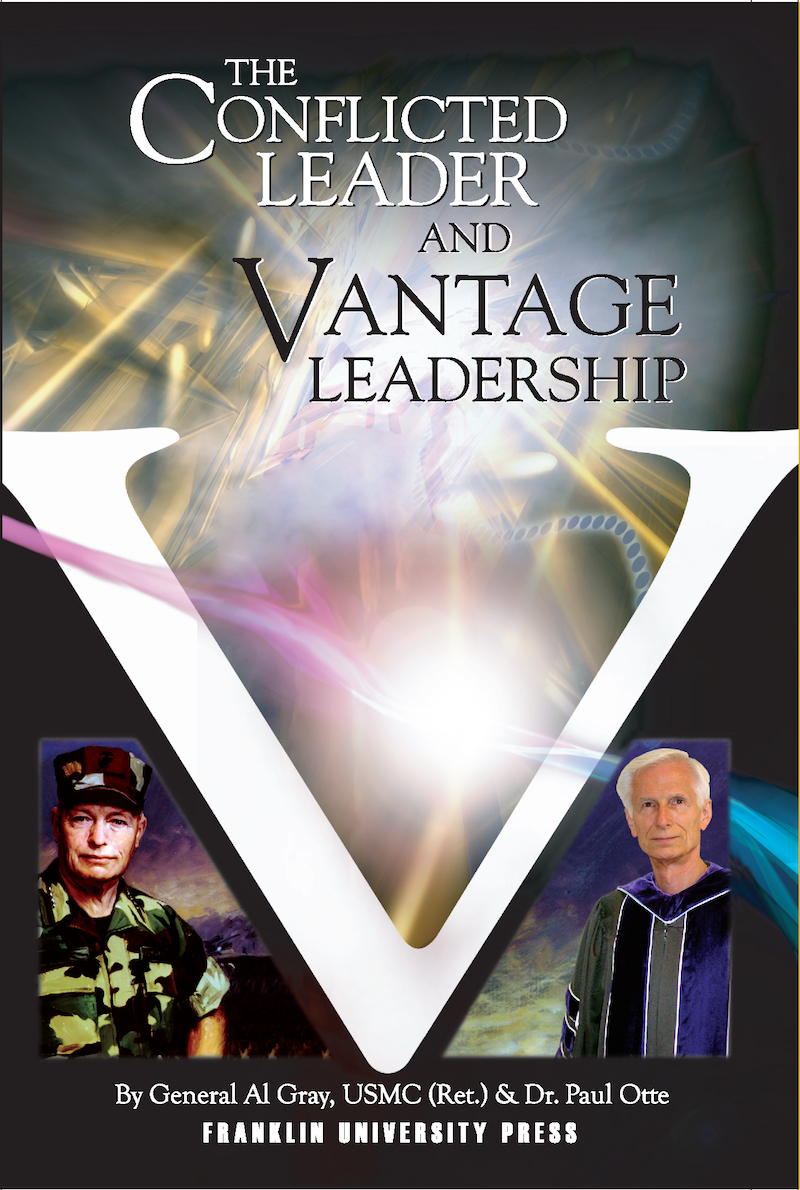
PRAISE FOR
The Conflicted Leader and Vantage Leadership
“In 1989, the U.S. Marine Corps promulgated a small book entitled Warfighting for all Marines. The intent was to describe General Al Gray’s philosophy on warfighting and to encourage leaders at all levels to use the Maneuver Warfare concepts and values as a way of thinking to meet the challenges of both combat and life. Now General Gray and Dr. Paul Otte have taken these principles and applied them to the everyday challenges of leadership in a complex and uncertain world. Understanding and using the concepts in this book will serve well all who aspire to lead and succeed at any level”
– Brent Scowcroft
Air Force Lt. General (Ret) and former National Security Advisor to President Gerald Ford and President George H.W. Bush
“General Al Gray’s leadership profoundly changed the US Marine Corps, US policy, and the way the US Military fights today in hundreds of ways. His unique form of leadership inspires all who come in contact with him. General Gray and Dr. Paul Otte have successfully outlined these principles of leadership in a fashion that will continue to inspire and guide people for generations to come.”
– Michael S. Swetnam
CEO and Chairman
Potomac Institute for Policy Studies
“The Conflicted Leader and Vantage Leadership provides a fresh perspective to the study of leadership, providing a basis for developing leadership concepts, ideas, and ideals that apply to you. This book is a “must read” for the serious student of leadership.
– Robert L. Bailey
Retired CEO, Chairman and President – State Auto Insurance Companies
Author of “Plain Talk About Leadership”
“The Marine Warfighting philosophy published by General Gray in 1989 contains concepts, values, and wisdom that helped transform the Marine Corps. Now, General Gray and his writing partner Dr. Paul Otte have captured these thoughts in a superb book. If you want to know why the Marines win – read this. You can us the same principles in your in your business or professional life.”
– David C. Miller, Jr.
Ambassador of the United Sates (Retired)
and former Special Assistant to President George H. W. Bush
“General Gray and Dr. Otte have advanced significantly the discourse on leadership for our modern age. Happily, one will not find in this work any endorsement of manipulative leadership so in evidence today, with its reliance on testing issues and words through focus groups before positions are articulated and ‘leadership’ is sounded through a false trumpet.”
– Norman G. Mosher, Capt, USN (Retired)
and former Professional Staff Member,
United States Senate Committee on Armed Services
“We owe General Gray and Dr. Otte great thanks for bringing us a very clear and convincing description of the U.S. Marine Corps’ extraordinary success in creating leaders and a culture of leadership throughout the organization. The military genuinely believes there is potential in most people. It is that profound belief that allows them to fully develop everyone’s potential.”
– Judith M. Bardwick
Author of “Danger in the Comfort Zone” and “In Praise of Good Business”

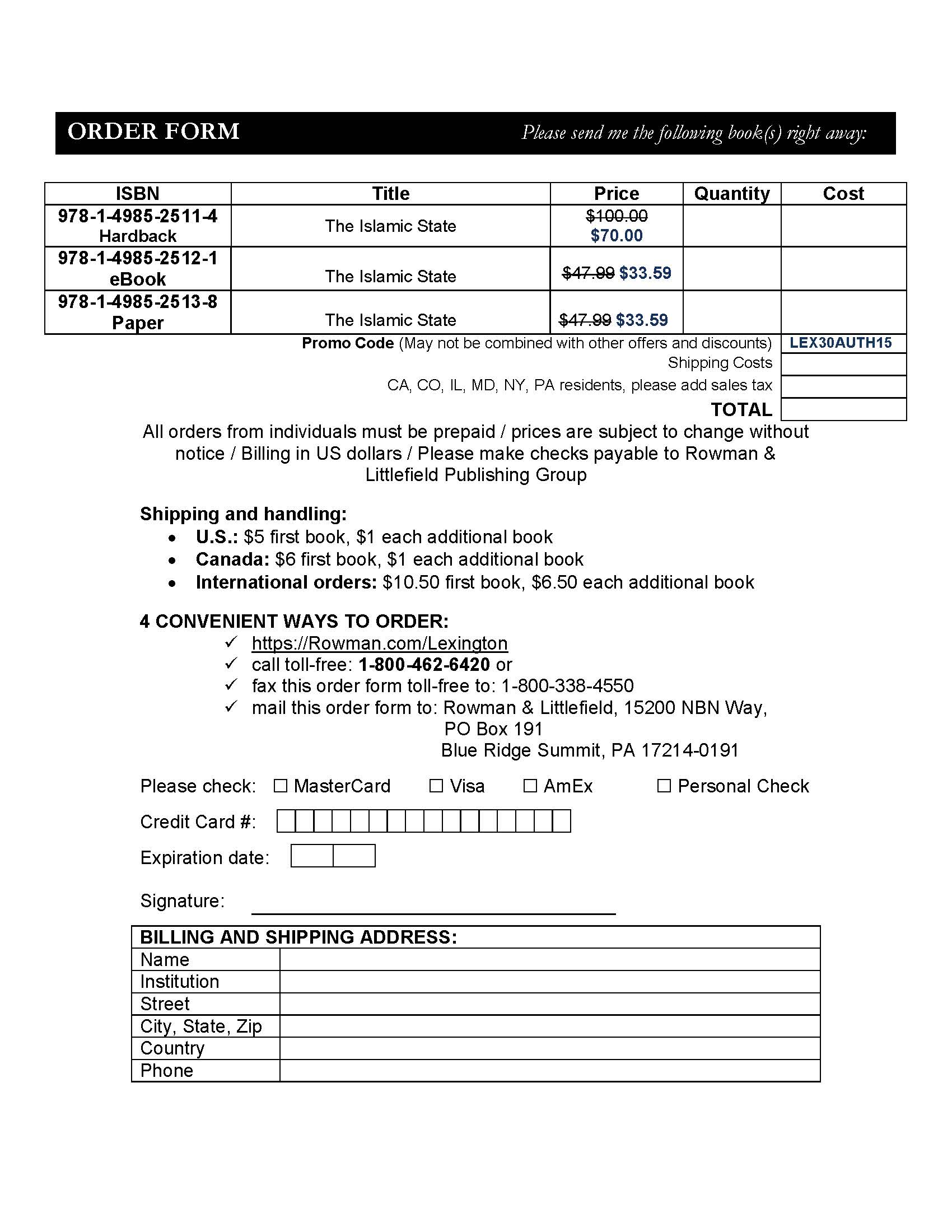
 Since before recorded history, mankind has been concerned about materials degrada- tion. In prehistoric times, people’s concern was with degradation of simple tools fashioned from materials found in nature; for example, a wooden club could degrade very quickly through biological mechanisms such as rot. As society advanced, the search for “things that last” – and consequently material sustainment – took on different dimensions. The Iron Age, for example, introduced a new dilemma: tools and weapons made of iron were much stronger than those made of bronze, but iron objects were also more prone to rust (corrosion). As a result, during the Iron Age people had to consider trade-offs: do I use a stronger, iron tool that degrades more quickly or keep the weaker, but less likely to corrode, bronze tool? It is not hard to imagine how that choice was made, rather dramatically, after the first fight between swordsmen with iron and bronze weapons. However, with the change to stronger iron weapons and other tools, the issue of chemical corrosion became a much more important consideration.
Since before recorded history, mankind has been concerned about materials degrada- tion. In prehistoric times, people’s concern was with degradation of simple tools fashioned from materials found in nature; for example, a wooden club could degrade very quickly through biological mechanisms such as rot. As society advanced, the search for “things that last” – and consequently material sustainment – took on different dimensions. The Iron Age, for example, introduced a new dilemma: tools and weapons made of iron were much stronger than those made of bronze, but iron objects were also more prone to rust (corrosion). As a result, during the Iron Age people had to consider trade-offs: do I use a stronger, iron tool that degrades more quickly or keep the weaker, but less likely to corrode, bronze tool? It is not hard to imagine how that choice was made, rather dramatically, after the first fight between swordsmen with iron and bronze weapons. However, with the change to stronger iron weapons and other tools, the issue of chemical corrosion became a much more important consideration.
As mankind advanced through the ages, the ability to address material degradation im- proved as scientific knowledge of the associated mechanisms increased, and engineers developed counters such as coatings to reduce the impact of corrosive effects. With the dawn of atomic weapons and power, and human exploration of space, we discovered new mechanisms of materials degradation beyond chemical reactions at the molecular level. But the nature of atomic effects associated with nuclear weapons, power and waste products were often highly classified, and to a large degree kept separate from the main- stream of corrosion science. Now that we have entered the Information Age, we are see- ing atomic effects in other areas, such as microelectronics, that cannot be explained by the classic, chemical definition of corrosion. Some of these effects, such as “tin whiskers” (which occur in applications in which lead-free solder is used), for example, have not been explained – other than “it’s not chemical or electrochemical.” In addition, unexplained effects in microbiological environments are emerging; we call these “biological effects cor- rosion” and introduce them briefly in this volume. Ultimately, to effectively fight corrosion in all its forms, we need to adopt the concept of the corrosion spectrum.
See full text of report here.
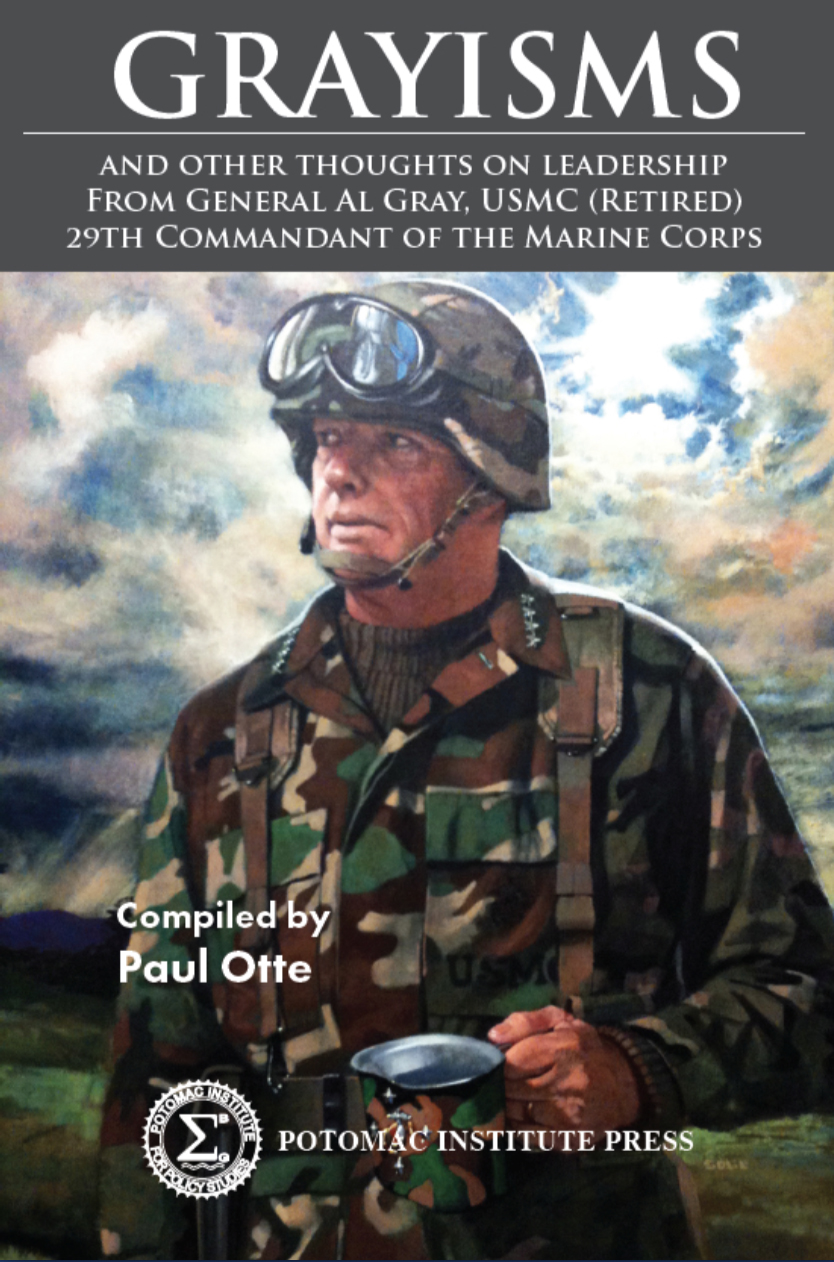 The Potomac Institute for Policy Studies is proud to announce the release of Grayisms, compiled Dr. Paul Otte. This book presents stories, experiences and reminisces of General Al Gray, USMC (Retired) 29th Commandant of the Marine Corps.
The Potomac Institute for Policy Studies is proud to announce the release of Grayisms, compiled Dr. Paul Otte. This book presents stories, experiences and reminisces of General Al Gray, USMC (Retired) 29th Commandant of the Marine Corps.
Grayisms are the embodiment of simplicity and capture recurring statements made by the General during his 41 year career in the Marine Corps and in subsequent years. General Gray’s love of his Marines along with the Sailors who serve with them and how much they love and respect him in return, shines through Grayisms. He has great admiration for all our Armed Forces.
Often one to shun head tables and staff cars for mess halls and jeeps, General Gray is a true leader to the Marines serving, not under, but beside him. He has never missed an opportunity to talk with the troops and is always eager to hear about what is happening on and off the field. The Grayism exemplified in this philosophy is, “Leaders must truly care more about the people they lead than themselves.” Even as a Commandant, he has never lost his “enlisted” mentality when it comes to caring for his Marines.
General Gray transformed the Marine Corps with his unique leadership, but his greatest legacy and source of happiness is the people he helped develop along the way, many who followed in his footsteps as Commandants, Generals, and leaders at all levels. Know that this book’s collection of stories is not complete. Ask any Marine that served with the General to tell you about him. Odds are they will have a story, or a Grayism, to share with you. “We were able to gain greater insight into this very special Marine who ‘took what he got, and made what he wanted.’ This book is a compilation of the many sayings we have heard and heard repeated, as they have been shared from one Marine to another”, commented Paul Otte.
About General Gray:
In 1991, after 41 years of service, General Gray retired from the U.S. Marine Corps. He has faithfully served around the world, including Korea, Japan, and Vietnam. Leaving most of us in the dust, General Gray has not slowed down since retirement. He has served on several public and private corporate boards and is the past Board Chairman of three public companies and three private companies. The Potomac Institute for Policy Studies is honored to have General Gray serve as a Senior Fellow, a Chairman of the Board of Regents and a member of the Board of Directors. From 2004-2014, General Gray served as Chairman of the Semper Fi Fund, which helps wounded warriors and their families.
Find your inspiration and favorite leadership quotes in Grayisms today.
For media inquiries or to schedule an interview, please contact Kathryn Schiller Wurster at This email address is being protected from spambots. You need JavaScript enabled to view it. or call 1-703-525-0770.
Hon. Tevi Troy, PhD, Senior Fellow’s book comes at the right time. U.S. Health Policy: An Insider’s Perspective thoughtfully assembles articles that Dr. Troy has written in publications ranging from The New Atlantis to The Wall Street Journal. He cohesively covers a number of subjects including Obamacare implementation, the government’s ability to impose its electronic medical records plan, biopreparedness, life science innovation, and Medicaid and Medicare.
Dr. Troy has travelled the world, representing both the Department of Heath and Human Services and the U.S. government as an ambassador for U.S. health care policy. In doing so, he was able to develop a better understanding of how to convey messages to a wide variety of people, “You can have the best policies in the world but they will not do any good if no one knows about them.”
http://www.amazon.com/U-S-Health-Policy-Insiders-Perspective/dp/0989855627
 The Potomac Institute for Policy Studies is pleased to present Alternative Futures for Corrosion and Degradation Research. This book, authored by study lead Dr. Robert Hummel, Chief Scientist of the Potomac Institute for Policy Studies, arose out of a study conducted for the Office of Corrosion Policy and Oversight (CPO) of the Office of the Secretary of Defense on research directions for alternative futures for corrosion and degradation.
The Potomac Institute for Policy Studies is pleased to present Alternative Futures for Corrosion and Degradation Research. This book, authored by study lead Dr. Robert Hummel, Chief Scientist of the Potomac Institute for Policy Studies, arose out of a study conducted for the Office of Corrosion Policy and Oversight (CPO) of the Office of the Secretary of Defense on research directions for alternative futures for corrosion and degradation.
Alternative Futures for Corrosion and Degradation Research offers a road map for novel research directions that could lead to dramatic changes in how the nation views and deals with corrosion and degradation problems. Corrosion is a national problem that goes beyond the rusting of metal. The issues associated with corrosion and degradation are responsible for more than one trillion dollars in annual national expenditures. This study outlined new approaches and technologies to materials sustainment, which could lead to reduced maintenance requirements and planned lifetimes for systems.
Alternative Futures for Corrosion and Degradation Research sparks the discussion of functional advances in corrosion control, including development of new materials and coatings, as well as novel systems engineering approaches to mitigate corrosion effects in systems throughout their lifecycle. Materials sustainment approaches include “the portfolio of long-range research programs should group programs that address the design and production phase, other programs that address the development of new materials and coatings, and other programs that address inspection and maintenance of systems.”
Click to Purchase
Click Here for Kindle Ebook Version
Daniel J. Dunmire, the Director of Corrosion Policy and Oversight for the Department of Defense, said, “This book maps an innovative approach in battling corrosion and supporting new ideas in material sustainment.”
###
Technical Contact: Robert Hummel, PhD, Chief Scientist, Potomac Institute for Policy Studies, This email address is being protected from spambots. You need JavaScript enabled to view it.
Media Contact: Kathryn Schiller Wurster, Chief of Staff, Potomac Institute for Policy Studies, This email address is being protected from spambots. You need JavaScript enabled to view it.
Robert Hummel, PhD, is the Chief Scientist at the Potomac Institute for Policy Studies, where he leads studies on science technology and innovation. The Potomac Institute for Policy Studies is an independent, 501(c)(3), not-for-profit public policy research institute with a focus on science, technology, and national security issues.
 The Potomac Institute Press is pleased to announce the latest book by Institute Chairman and CEO Michael Swetnam and ICTS Director Prof. Yonah Alexander, Al-Qa'ida: Ten Years After 9/11 and Beyond (Potomac Institute Press, 2012, ISBN: 978-0-9678594-6-0 Paperback, 454 pages). Orders for Al-Qa'ida, Ten Years After and Beyond may be placed through Amazon.com. Click here to access the Amazon listing.
The Potomac Institute Press is pleased to announce the latest book by Institute Chairman and CEO Michael Swetnam and ICTS Director Prof. Yonah Alexander, Al-Qa'ida: Ten Years After 9/11 and Beyond (Potomac Institute Press, 2012, ISBN: 978-0-9678594-6-0 Paperback, 454 pages). Orders for Al-Qa'ida, Ten Years After and Beyond may be placed through Amazon.com. Click here to access the Amazon listing.
Al-Qa'ida: Ten Years After 9/11 and Beyond follows the authors' 2001 book, Usama bin Laden's al-Qa'ida: Profile of a Terrorist Network, which came out just months before the 9/11 attacks. The new volume offers comprehensive coverage of the group’s history, leadership, financing, propaganda, ideology, and future outlook.
click here to purchase
Here's what prominent scholars are saying about Al-Qa'ida: Ten Years After 9/11 and Beyond:
“This is the indispensable book on al-Qa’ida, its spawn, and its affiliates. Usama and many of his lieutenants have been killed, and the central “base” weakened. But radical Islam and sundry jihadi organizations live. Yonah Alexander and Michael S. Swetnam have been writing about al-Qa’ida since 1988; they have not lost their touch.” Don Wallace, Jr., Professor of Law at Georgetown University and Chairman of the International Law Institute.
“This comprehensive book on al-Qa’ida, its evolution, current status, ideology, modus operandi, and its affiliates provides an excellent source for both experts and those who want to learn about this organization and the challenges posed by international terrorism in general.” Shireen Hunter, Visiting Professor, School of Foreign Service, Georgetown University, and Distinguished Scholar, Center for Strategic and International Studies.
“Few experts on ‘jihadi’ terrorism can write with more authority on the past ten years of al-Qa’ida after 9/11 than Yonah Alexander and his colleague, Michael S. Swetnam. Many things have happened in these ten years; 2011 was an important year just like 2001. To understand what is likely to happen in the future, this book is a must read for both experts and all those interested in world peace.” Honorary Professor Ved Marwah, Centre for Policy Research, New Delhi; Chairman, India’s Task Force on National Security and Criminal Justice System; Former Commissioner of Police Delhi; and Former Governor of Manipur and Jharkhand.
“Many books have been written on al-Qa’ida, but this comprehensive volume details not only the group’s origin and background, but also its evolution into the present. Yonah Alexander and Michael S. Swetnam have produced a much needed, up-to-date handbook on al-Qa’ida and its affiliated groups. An excellent source for all those who study or combat contemporary terrorism.” Michael Fredholm, Senior Researcher, Stockholm International Program for Central Asian Studies (SIPCAS), Stockholm University, Sweden.
“This book, produced from the pens of scholars that have been wrestling with the issues for decades, should come as a timely reminder that we might want to get back to business as usual but that the likes of al-Qa’ida won’t forget us.” William J. Olson, Distinguished Professor, National Defense University.
Authors:
Yonah Alexander, PhD
Director, Inter-University Center for Terrorism Studies
Director, International Center for Terrorism Studies, Potomac Institute for Policy Studies, Arlington, VA, USA
Co-Director, Inter-University Center for Legal Studies at the International Law Institute, Washington, DC, USA
Michael S. Swetnam
CEO and Chairman, Potomac Institute for Policy Studies, Arlington, VA, USA
Member, US Senate Select Committee on Intelligence Technical Advisory Group
Former Special Consultant to the President’s Foreign Intelligence Advisory Board, Washington, DC, USA
Table of Contents:
Introduction by Charles E. Allen
Chapter 1: Ideological and Theological Perspectives
and Goals
Chapter 2: Key Leadership
Chapter 3: Selected Modus Operandi
Chapter 4: Propaganda and Psychological Warfare
Chapter 5: Al-Qai’da’s Key Networks
Chapter 6: Selected Affiliated Groups
Chapter 7: Selected U.S. Individuals with Alleged
al-Qa’ida Connections
Chapter 8: Operation Neptune Spear and Beyond
Appendices
• Selected Electronic Political Communication from
al-Qa’ida (October 2001 – 2011)
• U.S. Indictment of Usama bin Laden (November 5, 1998)
• Remarks by the President on Osama bin Laden
(May 2, 2011)
• Ensuring al-Qa’ida’s Demise (Remarks by John Brennan
on June 29, 2011)
• National Strategy for Counterterrorism (June 2011)
• Empowering Local Partners to Prevent Violent
Extremism in the United States (August 2011)
• The Honorable James R. Clapper, Statement
• David H. Petraeus, Director of CIA, Statement
 |
Al Gray, Marine The Early Years 1950-1967 Vol. 1 Most people know General Al Gray as the 29th Commandant of the Marine Corps. His achievements as a transformational Commandant are legendary within the Marine Corps and the military services. However, little is generally known about his years as an enlisted Marine, junior officer and field grade officer. In this book, author Scott Laidig tells us the compelling story of those early years in the life of a unique, charismatic Marine who rose through the ranks to the pinnacle of Marine Corps leadership. Admirers of Al Gray, Marines who served under him and with him, history buffs, students of leadership and of the military, and readers interested in the Vietnam era will all find much to fascinate them in this book, written by a decorated Marine combat veteran of Vietnam. This volume covers the career of Al Gray from his time as a young sergeant in the Amphibious Recon Platoon, to duty as both an artillery officer and an infantry officer along The Main Line of Resistance in Korea and later while conducting special operations in Vietnam in 1964, through command of Vietnam’s northernmost outpost at Gio Linh in 1967, to assignments in the secretive field of cryptology. The book is rich with personal and historical details, anecdotes and colorful episodes that bring this remarkable Marine’s experiences to life on the page. You will finish this book with a deeper understanding of the qualities that make Al Gray a revered leader with the US Marine Corps, and a true national treasure. (Purchase Here)
Interview with author about book - Leatherneck Magazine:
http://www.mca-marines.org/leatherneck/author-interview-scott-laidig-his-book-al-gray-marine-early-years-1950-1967-vol-1
Review in the Marine Corps Gazette:
https://www.mca-marines.org/gazette/bookreview/al-gray-marine-early-years-1950%E2%80%931967-vol-1
Review in Leatherneck Magazine:
https://www.mca-marines.org/leatherneck/bookreview/al-gray-marine%E2%80%94-early-years-1950-1967-volume-one
|
A Life at Full Speed: A Journal of Struggle and Discovery
by Charles M. Herzfeld
Among computer science aficionados, Dr. Charles Herzfeld is affectionately known as the “Godfather of the Internet.” As Director of ARPA, the 1960s forerunner of DARPA (today’s Defense Advanced Research Projects Agency), he was the force behind the development of the ARPANET, which ultimately became the Internet we know today. But what many do not know is the backstory behind this phenomenal achievement. The heady political, cultural and scientific milieu of that time was his element, and he emerged as a true high-tech legend. His numerous awards and honors include induction into the Internet Hall of Fame in 2012, with the title of “Pioneer.” Charles Herzfeld’s life story is an iconic American tale. Here, in his own words, is that story.
Click to Purchase
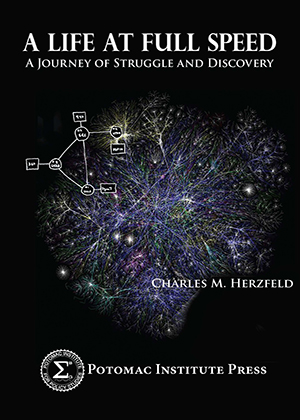
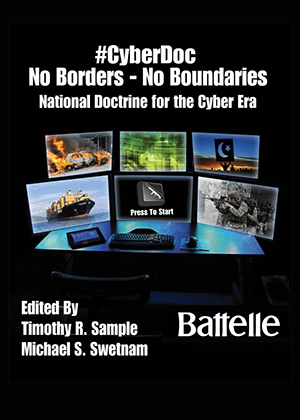 Co-editors Timothy Sample and Michael Swetnam, along with a dozen thought leaders in the realm of cyber security, have assembled “#CyberDoc: No Borders - No Boundaries” as a preliminary framework for the development of a national doctrine for the cyber era.
Co-editors Timothy Sample and Michael Swetnam, along with a dozen thought leaders in the realm of cyber security, have assembled “#CyberDoc: No Borders - No Boundaries” as a preliminary framework for the development of a national doctrine for the cyber era.
Cyber technologies are an increasingly essential part of daily life for people around the world, and have fundamentally altered our lives in countless ways. The Internet is now as essential as any other “utility,” and is so seamlessly woven into the fabric of life that we rarely even think about it. At the same time, the vulnerabilities inherent in our reliance on the Internet are rarely discussed publicly in terms of our national security. Those responsible for protecting the capabilities upon which we all rely, as well as the security of the United States, have struggled to articulate and agree upon a doctrine to address these complex issues.
Several of the authors whose essays are included herein begin from the standpoint of nuclear doctrine, assessing whether concepts like containment, mutually assured destruction, and first strike are relevant in the cyber era. Other authors address our role as a nation in a world that is dominated by information and governed by its control. Indeed, we may already be “at war” in a sense that may not neatly fit into the established norms and definitions of war, and may not be bounded by existing treaties and agreements.
The goal of this volume is to raise and debate the issues that a doctrine should consider, and to begin identifying a broad framework from which a doctrine might be developed. It is intended to be the start of a critically important discussion on this topic, one that will inform and guide the development of a useful and enduring doctrine, as well as subsequent policies and strategies, for the United States.
Find on Amazon
 The Potomac Institute for Policy Studies is pleased to recognize the latest book edited by VP for Academic Programs, Prof. James Giordano, PhD, entitled Neurotechnology: Premises, Potential and Problems (CRC Press, 2012). Prof. Giordano is also the Director of the Institute's Center for Neurotechnology Studies. Here's how CRC Press describes the new book: "Written by leading international experts, this text presents a unique, integrative perspective that examines how studies and developments in neurotechnololgy are both impacted by and affect the philosophical foundations of the human condition. As the first book in the series Advances in Neurotechnology: Ethical, Legal and Social Issues, this work establishes the current state of neurotechnology and defines the philosophical and ethical issues in neuroscience, neuroengineering, biomedical engineering, computer science, and nanoscience. It also specifically addresses core questions that are integral to the intellectual and pragmatic dimensions of the rapidly progressing field of neurotechnology." The book Neurotechnology: Premises, Potential and Problems has an official publication date of April 24, 2012. Please note that CRC Press is offering a 20% discount and free shipping to customers who enter code 888FX at online checkout.
The Potomac Institute for Policy Studies is pleased to recognize the latest book edited by VP for Academic Programs, Prof. James Giordano, PhD, entitled Neurotechnology: Premises, Potential and Problems (CRC Press, 2012). Prof. Giordano is also the Director of the Institute's Center for Neurotechnology Studies. Here's how CRC Press describes the new book: "Written by leading international experts, this text presents a unique, integrative perspective that examines how studies and developments in neurotechnololgy are both impacted by and affect the philosophical foundations of the human condition. As the first book in the series Advances in Neurotechnology: Ethical, Legal and Social Issues, this work establishes the current state of neurotechnology and defines the philosophical and ethical issues in neuroscience, neuroengineering, biomedical engineering, computer science, and nanoscience. It also specifically addresses core questions that are integral to the intellectual and pragmatic dimensions of the rapidly progressing field of neurotechnology." The book Neurotechnology: Premises, Potential and Problems has an official publication date of April 24, 2012. Please note that CRC Press is offering a 20% discount and free shipping to customers who enter code 888FX at online checkout.
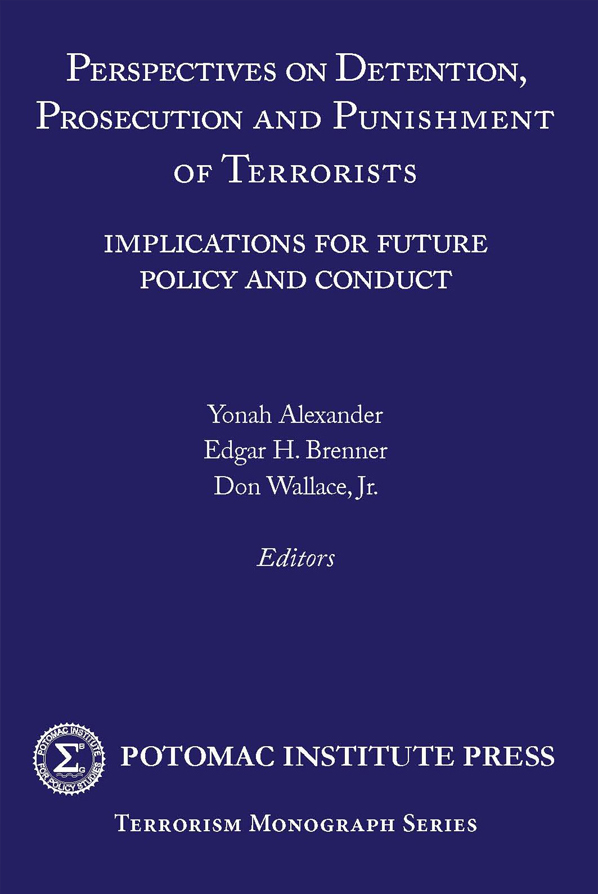 The Potomac Institute Press is pleased to announce that Perspectives on Detention, Prosecution, and Punishment of Terrorists: Implications for Future Policy and Conduct is now available in a Kindle edition. The new book is the first volume in a series of monographs by the Potomac Institute Press, edited by Prof. Yonah Alexander, PhD, Director of the Institute's International Center for Terrorism Studies, and Profs. Edgar Brenner and Don Wallace. Click here to access the Kindle listing on Amazon.com.
The Potomac Institute Press is pleased to announce that Perspectives on Detention, Prosecution, and Punishment of Terrorists: Implications for Future Policy and Conduct is now available in a Kindle edition. The new book is the first volume in a series of monographs by the Potomac Institute Press, edited by Prof. Yonah Alexander, PhD, Director of the Institute's International Center for Terrorism Studies, and Profs. Edgar Brenner and Don Wallace. Click here to access the Kindle listing on Amazon.com.
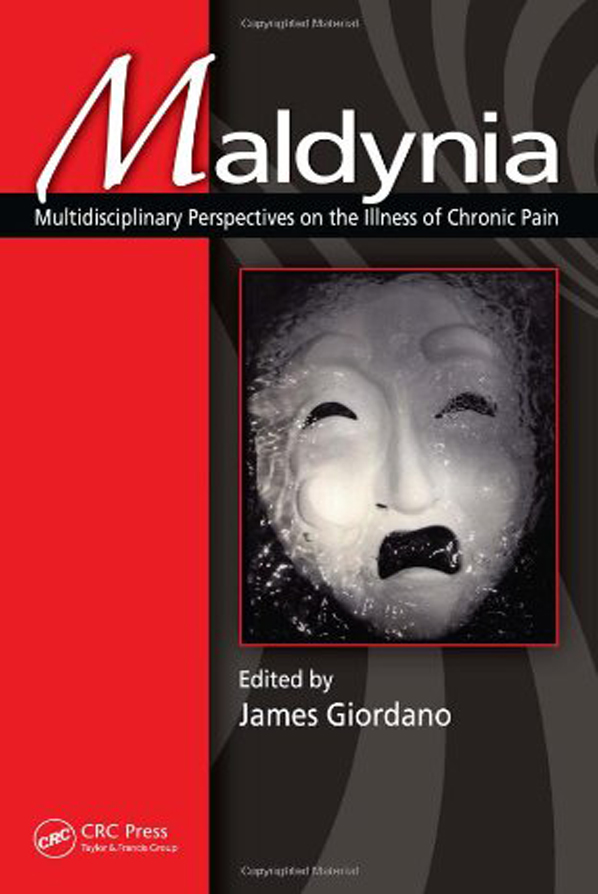 The Potomac Institute for Policy Studies' Prof. James Giordano, PhD, Vice President for Academic Programs and Director of the Center for Neurotechnology Studies, is the editor of the recent book Maldynia: Multidisciplinary Perspectives on the Illness of Chronic Pain (CRC Press, 2010). The book is available on Amazon.com: click here to access the Amazon listing.
The Potomac Institute for Policy Studies' Prof. James Giordano, PhD, Vice President for Academic Programs and Director of the Center for Neurotechnology Studies, is the editor of the recent book Maldynia: Multidisciplinary Perspectives on the Illness of Chronic Pain (CRC Press, 2010). The book is available on Amazon.com: click here to access the Amazon listing.
Maldynia: Multidisciplinary Perspectives on the Illness of Chronic Pain focuses on the issue of chronic pain that has progressed to a multidimensional illness state in and of itself. Although often dismissed as such, this pain is not imaginary, but rather represents an interaction of neurobiological processes, emotional and behavioral responses, and socio-cultural effects and reactions that become enduring elements in the life and world of the pain patient, and often remain enigmatic for those who provide care. This volume emphasizes the need for researchers, clinicians, and caregivers to regard the ways in which chronic ,intractable pain becomes illness and affects a patient’s biological, social, and psychological states. Click here for more information about Prof. Giordano and the Center for Neurotechnology Studies.
 Potomac Institute for Policy Studies Academic Fellow Dr. Roland Benedikter is the author of a new book, Social Banking and Social Finance: Answers to the Economic Crisis (Springer, 2011). Click here to access the Amazon.com listing. Dr. Benedikter is currently the European Foundations' Research Professor of Political Sociology, and Visiting Scholar at the Forum on Contemporary Europe of Stanford University, Palo Alto, CA.
Potomac Institute for Policy Studies Academic Fellow Dr. Roland Benedikter is the author of a new book, Social Banking and Social Finance: Answers to the Economic Crisis (Springer, 2011). Click here to access the Amazon.com listing. Dr. Benedikter is currently the European Foundations' Research Professor of Political Sociology, and Visiting Scholar at the Forum on Contemporary Europe of Stanford University, Palo Alto, CA.
In his new book, Dr. Benedikter observes that for over 2,000 years, banks have served to facilitate the exchange of money and to provide a variety of economic and financial services. During the most recent financial collapse and subsequent recession, beginning in 2008, banks have been vilified as perpetrators of the crisis, the public distrust compounded by massive public bailouts.
Nevertheless, another form of banking has also emerged, with a focus on promoting economic sustainability, investing in community, providing opportunity for the disadvantaged, and supporting social, environmental, and ethical agendas. Social Banking and Social Finance traces the emergence of the “bank with a conscience” and proposes a new approach to banking in the wake of the economic crisis.
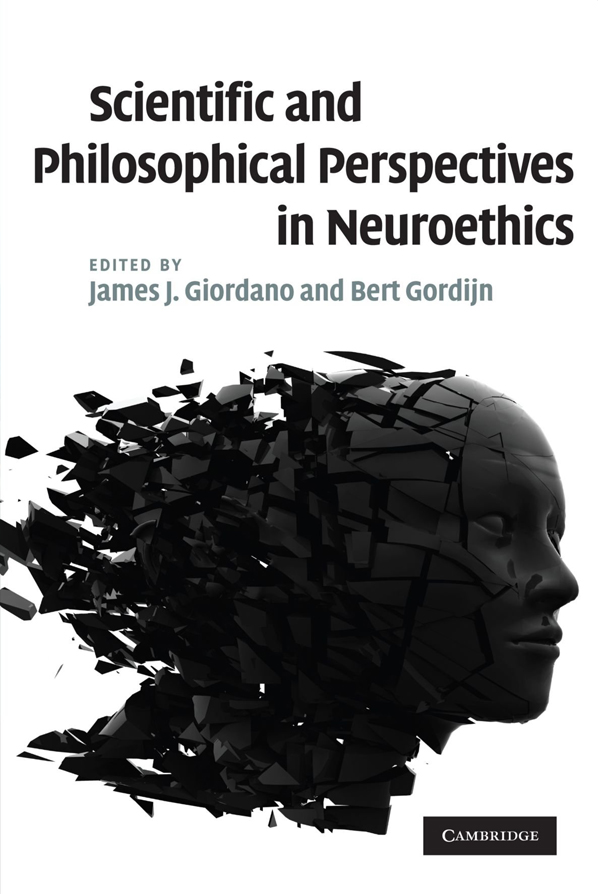 The Potomac Institute for Policy Studies' Prof. James Giordano, PhD, Vice President for Academic Programs and Director of the Center for Neurotechnology Studies, has recently published Scientific and Philosophical Perspectives in Neuroethics (Cambridge University Press, 2010). The book is available on Amazon.com: click here to access the listing on Amazon.
The Potomac Institute for Policy Studies' Prof. James Giordano, PhD, Vice President for Academic Programs and Director of the Center for Neurotechnology Studies, has recently published Scientific and Philosophical Perspectives in Neuroethics (Cambridge University Press, 2010). The book is available on Amazon.com: click here to access the listing on Amazon.
A compilation of essays from leaders in the field, Scientific and Philosophical Perspectives in Neuroethics explores the multiple - and sometimes surprising - ramifications of rapid progress in neuroscience and neurotechnology.Even as neuroscientific research provides deeper insight into the workings of nervous systems, the fact remains that there is much we do not know about the nature of mind and consciousness. Technical knowledge alone does not bridge this gap, and as a result there are many challenging ethical and social questions about the meaning and use of neuroscientific discoveries. Prof. Giordano will address these controversies.

Why has radical Islam become such a deadly threat, and why does it dominate the Muslim world? Dr. Tawfik Hamid answers these and other questions about this evil movement clearly and accessibly in his groundbreaking work. Dr. Hamid knows about radical Islam firsthand. In the early 1980s, he was recruited into Jamaa Islamiya, a terror group led at the time by Dr. Ayman al-Zawahiri, the man who went on to replace Osama bin Laden as leader of al-Qaeda. Eventually and miraculously, Dr. Hamid recognized the insidious nature of violent jihad and rejected its distortions of the Quran, the holy book of the Muslim faith. Ever since, he has pursued the reformation of Islam. He has written new interpretations of the Quran's key texts and has shared his message in many mosques. Inside Jihad reveals Dr. Hamid's deep insights about and passionate opposition to the Islamic terror movement drawn from his direct personal experiences. As a medical doctor and an expert on the psychology of the jihadist mindset, he explains the roles that sex, fear, petrodollars and the hijab for women have played in its proliferation. And he details his bold plan for Islamic reformation that would eventually change the jihadists minds and end their reign of terror.
Dr. Tawfik Hamid is a Senior Fellow in and Chair of the Study of Islamic Radicalism at the Potomac Institute for Policy Studies. He is considered a world authority on Islamism and counterterrorism. As such, he has been a keynote speaker at intelligence summits in Washington, D.C., and elsewhere. He has discussed jihadism with senators and members of Congress, and has lectured at conferences in Europe and the United States, as well as at several universities. He has been featured on Fox News, CNN and the BBC, and he has published analyses in The Wall Street Journal, the National Review and for the Hudson Institute.
From Mountain Lake Press
Mountain Lake Park, Maryland
Release Date: September 10, 2015
238 pages; paperback (6 x 9); indexed
ISBN 978-0-9908089-1-6
PCN 2014945085
$16.95 ($19.95 Canada)
Distributor: Independent Publishers Group
Agent: Susan Schulman Literary Agency LLC
Publisher/Publicity contact: Phil Berardelli
This email address is being protected from spambots. You need JavaScript enabled to view it.
301-501-5151
http://mountainlakepress.com
 The Potomac Institute Press is pleased to announce that Bureaucratic Nirvana: Life in the Center of the Box, by Potomac Institute for Policy Studies Senior Fellow Hugh Montgomery, is now available on Amazon.com. Click here to access the Amazon listing. In Bureaucratic Nirvana, Montgomery draws on his four decades of experience to present a "how-to" primer for Pentagon contractors, administrators and researchers seeking a better understanding of the R&D bureaucracy.
The Potomac Institute Press is pleased to announce that Bureaucratic Nirvana: Life in the Center of the Box, by Potomac Institute for Policy Studies Senior Fellow Hugh Montgomery, is now available on Amazon.com. Click here to access the Amazon listing. In Bureaucratic Nirvana, Montgomery draws on his four decades of experience to present a "how-to" primer for Pentagon contractors, administrators and researchers seeking a better understanding of the R&D bureaucracy.
 The Potomac Institute Press is pleased to announce that the new edition of Best Available Science: Fundamental Metrics for Evaluation of Scientific Claims is now available for purchase on Amazon.com. Click here to access order page.
The Potomac Institute Press is pleased to announce that the new edition of Best Available Science: Fundamental Metrics for Evaluation of Scientific Claims is now available for purchase on Amazon.com. Click here to access order page.
In this updated and revised edition of Best Available Science: Fundamental Metrics for Evaluation of Scientific Claims, authors A. Alan Moghissi, Michael Swetnam, Betty R. Love and Sorin R. Straja draw on their decades of experience to provide straightforward, easy-to-understand guidance for policymakers tasked with evaluating scientific claims. Scientists and non-scientists alike will find the step-by-method outlined here to be invaluable in a world where new scientific developments are reported at a breathtaking pace.
Best Available Science is the latest publication of the Potomac Institute Press, a subsidiary of the Potomac Institute for Policy Studies. The Potomac Institute Press publishes original works addressing key contemporary issues in science, technology, healthcare, environment, national security and defense that are of interest to the academic community, government sector and general public alike. In this way, the Potomac Institute Press enables the Institute’s philosophy of providing important scientific, technical and policy information that is of high quality and remains independent and objective. Click here to read more about the Potomac Institute Press.
By Yonah Alexander
 To date, no definitive study has dealt specifically with the role of American citizens in supporting foreign political, ideological, or extremist religious agendas. Dr. Yonah Alexander's forthcoming book, Terrorists in Our Midst: Combating Foreign-Affinity Terrorism in America, remedies that. In the book, seven expert authors discuss the threats to American security interests in the United States and elsewhere.
To date, no definitive study has dealt specifically with the role of American citizens in supporting foreign political, ideological, or extremist religious agendas. Dr. Yonah Alexander's forthcoming book, Terrorists in Our Midst: Combating Foreign-Affinity Terrorism in America, remedies that. In the book, seven expert authors discuss the threats to American security interests in the United States and elsewhere.
Terrorists in Our Midst focuses not only on foreign nationals operating in the United States, but also on American citizens participating in terror networks at home and abroad. The book presents an overview of both conventional and unconventional terrorism, surveys the terrorist threat in the United States by state and non-state actors, and analyzes the foreign-affinity links of American operatives in this country and abroad. Most important for the safety and security of the United States, it offers an assessment of what policies worked and what did not work, specifying a “best practices” agenda of recommendations that should be adopted by the United States and the international community. Also included are case studies and a discussion of various U.S. policies, including intelligence, law enforcement, border security, and civil liberties.
Yonah Alexander is Professor Emeritus of State University of New York and a former research Professor and Director of Terrorism Studies at George Washington University. Currently he is Director of the Inter-University Center for Terrorism Studies, a consortia of universities and think tanks throughout the world. He is also a senior fellow and director of the International Center for Terrorism Studies (at the Potomac Institute for Policy Studies) and is a co-director of the Inter-University Center for Legal Studies (at the International Law Institute). Dr. Alexander has published 95 books as well as founded and edited three International Journals: Terrorism; Minority and Group Rights; and Political Communication and Persuasion.
His co-contributors to Terrorists in Our Midst are Prof. Raymond Tanter (Michigan); Prof. William Lewis (GWU); Prof. Edgar H. Brenner (ILI); Bruce Zagaris, Esq.; Martin Sieff (UPI); and Oliver “Buck” Revell (former FBI).
Publication date: 12/30/09 0-313-37570-4; 978-0-313-37570-5; $49.95 U.S.Dollars; £34.95 Sterling
20% Pre-publication discount: $39.95 U.S. Dollars; £27.95 Sterling
To order or for more information please contact:
US Contact: ABC-CLIO
Call: 1-800-368-6868;
Fax: 1-805-685-9685
Online: www.abc-clio.com
Orders by email: This email address is being protected from spambots. You need JavaScript enabled to view it.
Marston Book Services Ltd
160 Milton Park, Abingdon OX14 4SD, UK
PO Box 1437 • Oxford, UK OX4 9AZ
Tel: +44 (0)1235 465500
Fax: +44 (0)1235 465555
This email address is being protected from spambots. You need JavaScript enabled to view it.
 By Yonah Alexander and Tyler B. Richardson
By Yonah Alexander and Tyler B. Richardson
Terror on the High Seas: From Piracy to Strategic Challenge is a provocative look at maritime security and the steps that must be taken if terrorist threats are to be nullified. From the Achille Lauro hijacking to the bombing of the USS Cole to attacks on shipping channels by Somali pirates, terrorists have employed a variety of tactics, both successful and unsuccessful. These have included the smuggling of arms and plots to bomb shipyards, as well as attacks on Merchant Marine ships, maritime offices, fuel storage facilities, and Navy personnel, ships, and facilities, both on shore and in port.
This book constitutes the first research effort after the unprecedented attacks of September 11, 2001, to provide government, industry, and the academic and policy communities with a major resource on potential threats to the maritime environment. Assuming that past tactics, as well as a variety of other unconventional attacks, will be utilized by both domestic and international groups well into the 21st century, the book sagely outlines the response needed from government and industry to meet the coming challenges.
"Professor Yonah Alexander and Tyler Richardson have written and compiled an outstanding and comprehensive review of piracy and terrorism at sea, an essential tool by anyone desiring to understand and fight this timeless, and yet modern day, threat to public safety, international security and commerce. They have constituted this book to provide governmental leaders, policy makers, academicians, law enforcement officials, and the maritime industry, with the body of knowledge, easily accessible, to achieve the deep understanding of where we are in addressing terror on the high seas, the indispensable prerequisite for charting the future through pirate-infested waters."
- Jamie Barnett, Rear Admiral USNR (Retired), Director of Naval Education & Training from 2004-2006
YONAH ALEXANDER is a Senior Fellow and Director of the Inter-University Center for Terrorism Studies based at the Potomac Institute for Policy Studies and the International Law Institute. He has published over 95 books in the field of international terrorism including The New Iranian Leadership: Ahmadinejad, Nuclear Ambition and the Middle East; Evolution of U.S. Counterterrorism Policy: A Documentary Collection (3 Vols.); and Turkey: Terrorism, Civil Rights, and the European Union. TYLER RICHARDSON has served as the Director of Research for the Inter-University Center for Terrorism Studies and as Defense Fellow for the Long-Term Strategy Project, both in Washington, DC. His work on maritime terrorism and port security issues has been published by The Washington Times, United Press International, The Jerusalem Post and The Lexington Institute. Mr. Richardson holds a B.A. in English from Georgetown University and an MBA from The University of North Carolina at Chapel Hill. He currently works as a Senior Analyst in North Carolina.
Publication date: September 2009; ISBN: 0-275-99750-2 (Two volumes, 660 pgs.)
$195.00 U.S. Dollars £134.95 Sterling
20% Pre Publication Discount $156.00 U.S. Dollars; £107.95 Sterling
To order outside the US or for more information please contact:
Marston Book Services Ltd
160 Milton Park, Abingdon OX14 4SD, UK
PO Box 1437 • Oxford, UK OX4 9AZ
Tel: +44 (0)1235 465500; Fax: +44 (0)1235 465555
This email address is being protected from spambots. You need JavaScript enabled to view it.
US Contact: ABC-CLIO
Call: 1-800-368-6868;
Fax: 1-805-685-9685
Online: www.abc-clio.com
Orders by email: This email address is being protected from spambots. You need JavaScript enabled to view it.
By Dr. James Giordano and M.V. Boswell
 This book, edited and written by leading scholars in the field(s) of neuroscience, ethics, law and healthcare policy, provides a unifying perspective of how a philosophical understanding of pain and medicine gives rise to the ethics and policies of pain care. Toward these ends, the chapters shed light on how pain and the experience of the patient and clinician establish the moral obligations of pain medicine, and the conditions necessary to enact pain care on a global scale. In this context, the authors consider possible ethical systems and approaches that are important to, and viable for pain medicine, and provide perspectives into the ways that moral obligations and practical realties are wedded to (and should underscore) any and all practice guidelines, health policy, and laws. In these ways, this volume provides erudite discussions of how contemporary knowledge of pain could and should influence the moral values, and conduct, tenor and value(s) of medical practice, and how this knowledge might serve as a foundation upon which to construct policies toward a more meaningful, patient-centered pain medicine in the future.
This book, edited and written by leading scholars in the field(s) of neuroscience, ethics, law and healthcare policy, provides a unifying perspective of how a philosophical understanding of pain and medicine gives rise to the ethics and policies of pain care. Toward these ends, the chapters shed light on how pain and the experience of the patient and clinician establish the moral obligations of pain medicine, and the conditions necessary to enact pain care on a global scale. In this context, the authors consider possible ethical systems and approaches that are important to, and viable for pain medicine, and provide perspectives into the ways that moral obligations and practical realties are wedded to (and should underscore) any and all practice guidelines, health policy, and laws. In these ways, this volume provides erudite discussions of how contemporary knowledge of pain could and should influence the moral values, and conduct, tenor and value(s) of medical practice, and how this knowledge might serve as a foundation upon which to construct policies toward a more meaningful, patient-centered pain medicine in the future.
About the Author
Editor, James Giordano, PhD is Professor of Neuroscience, Philosophy, and Ethics at the Institute for Psychological Sciences, Centre for Philosophical Psychology, and Fellow, Blackfriars Hall, University of Oxford, UK, and is the Director of the Center for Neurotechnology Studies, and Chair of the Academic Programs at the Potomac Institute for Policy Studies, in Arlington, VA (USA). His research is focused upon the molecular and behavioral neuroscience of pain and analgesia; the neurophilosophy of pain and mind, and the neuroethics of pain research and treatment. Editor, Mark V. Boswell, MD, PhD is Professor and Chair of the Department of Anesthesiology and Director of the International Pain Center, at Texas Tech University Health Sciences Center School of Medicine, in Lubbock, Texas. His clinical and research interests focus upon neuroanesthesia, acute, chronic and neuropathic pain disorders, and the roles and practices of interventional pain management and palliative care.
Purchase book on Amazon.com
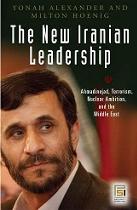
by Yonah Alexander, Ph.D. and Milton Hoenig, Ph.D.
Since his election, President Mahmoud Ahmadinejad of Iran has reversed the more moderate and pluralistic policies of his predecessor and projected himself onto the public scene with headline-grabbing speeches regarding Jews and the state of Israel, open defiance of the UN Security Council on the nuclear issue, and an apparent vision of his country becoming the dominant power in the Middle East. Iran's nuclear ambitions are in direct conflict with the wishes of the United States, the European Union, and many of the governments of the Middle East, leading to consequences that remain uncertain. Iran is a focus of attention in the most recent war in Lebanon, expanding its influence as a (the?) major supporter and supplier of Hezbollah. And Iran is cited in the most recent annual U.S. State Department report on terrorism as the country that is the "most active sponsor of terrorism." This book documents Ahmadinejad's background and rise to power. It explains the current structure of the Iranian revolutionary government--the competing centers of power and the major players. In separate sections it details the terrorist groups funded and armed by Iran, primarily Hezbollah and Hamas. And it provides a comprehensive picture of Iran's apparent aspirations to acquire nuclear weapons, as well as the related implications for regional and global security concerns. There is little reason to believe that Ahmadinejad will leave the scene anytime soon, or that Iran's behavior will change in the near term.
Buy the book at Amazon.com
 by Ben Sheppard, Ph.D.
by Ben Sheppard, Ph.D.
This new volume explores terrorism and strategic terror, examining how the public responds to terrorist attacks, and what authorities can do in such situations.
The book uses a unique interdisciplinary approach, which combines the behavioural sciences and international relations, in order to further the understanding of the 'terror' generated by strategic terror. The work examines five contemporary case studies of the psychological and behavioural effects of strategic terror, from either terrorist attacks or aerial bombardment. It also looks at how risk-communication and public-health strategies can amplify or reduce psychological and behavioural responses, and considers whether behavioural effects translate into political effects, and what governments can do to relieve this. Ultimately, the study argues that the public is not prone to panic, but can change their behaviours to reduce their perceived risk of being exposed to a terrorist attack. This book will be of much interest to students of terrorism studies, homeland security, social psychology and politics in general.
Ben Sheppard is an Adjunct Fellow at the Potomac Institute for Policy Studies, Washington, DC, specializing in the terror of terrorism and missile proliferation. He has a Ph.D. from King’s College London.
Table of Contents
1. Introduction
2. Overview of the key disciplines
3. Methodological Parameters
4. Israel and the Scud Missile Attacks During the 1991 Gulf War
5. The Tokyo Sarin Attack
6. September 11 Attacks
7. 2001 Anthrax Attacks
8. Israel and the Second Intifada
9. Conclusion. Selected Bibliography
Buy the book at Routledge.com
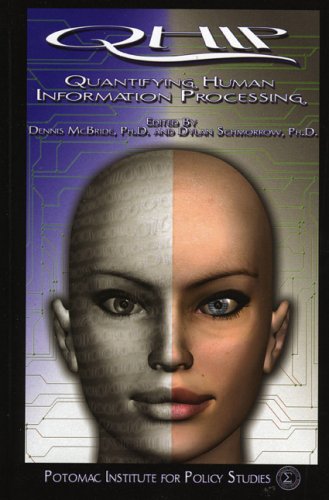
Quantifying Human Information Processing (Potomac Institute for Policy Studies) [Hardcover]
Quantifying Human Information Processing
- Dennis K. McBride (Editor), Dylan Schmorrow (Editor)
ISBN-13: 978-0739112014 ISBN-10: 0739112015
Rapid advances in IT that allow complex information to be presented in high volume and density are challenging human ability to absorb and analyze data as never before. Designing technologies and systems to provide optimal sensory information to human users will be increasingly important. But to do this, quantitative relationships between brain behavior at a molecular level and observable human behavior must be better identified. This was previously considered to be a futuristic, and somewhat unrealistic, goal, however, recent advances in cognitive neuroscience have provided new opportunities for researchers.
Refinements in imaging technology and simulation tools, and the learning yielded from them, provided the Quantifying Human Information Processing (QHIP) research teams strong starting points from which to further assess the ability to quantify human information processing. Led by experts in psychology, cognitive science, and information processing, among other fields, researchers sought to quantify the information flow in the nervous system, the limits of that flow, and how it is affected by emotions. The QHIP effort looked at specific aspects of the brain's information processing ability including measuring task-related and unrelated thought, assessing mental workload, and finding optimal information processing.
The researchers found important indicators of both the capacity and limits of the human brain, and offer new ways to think about the brain. This work is a valuable contribution to the fields of psychology, neuroscience, and cognition, and will serve as a resource for human factors engineers designing the next generation of information, safety, analysis, and control systems because it starts to answer how to maximize information processing without overloading the central nervous system
click to purchase
by Michael Swetnam and Yonah Alexander.
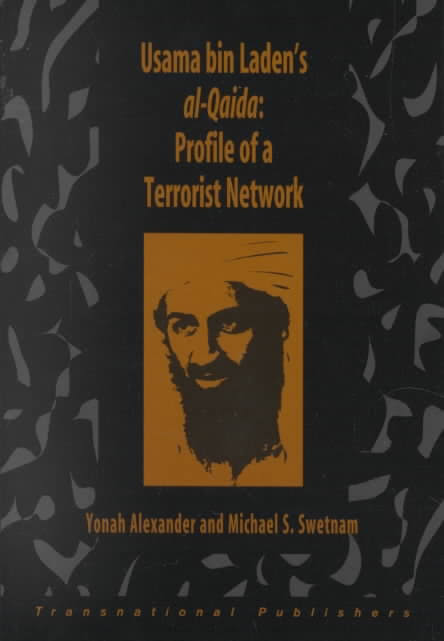 The al-Qaida informal and loose international network in over 50 countries has been responsible for spectacular terrorist operations such as the 1993 World Trade Center bombing in New York, the 1996 bombing of the Khobar Towers in Saudi Arabia, the 1998 U.S. embassy bombings in East Africa, and is apparently linked to the attack of the destroyer USS Cole in Aden, Yemen, in 2000 and the September 11th, 2001 events in New York City and Washington, DC.
The al-Qaida informal and loose international network in over 50 countries has been responsible for spectacular terrorist operations such as the 1993 World Trade Center bombing in New York, the 1996 bombing of the Khobar Towers in Saudi Arabia, the 1998 U.S. embassy bombings in East Africa, and is apparently linked to the attack of the destroyer USS Cole in Aden, Yemen, in 2000 and the September 11th, 2001 events in New York City and Washington, DC.
The purpose of this book is not to glorify bin Laden and al-Qaida. Rather, it is designed to provide an easily accessible reference for academics, policymakers, reporters and other interested individuals on one of the most notorious terrorist groups. The volume exposes much of al-Qaida's mystique and thereby places it in perspective as one of the many challenges facing the international community in the 21st Century.
Click here to purchase on Amazon




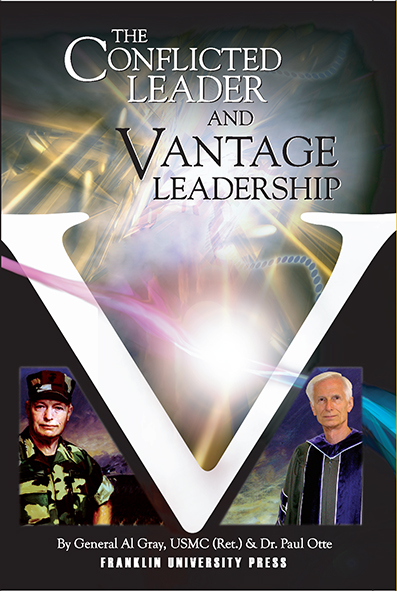




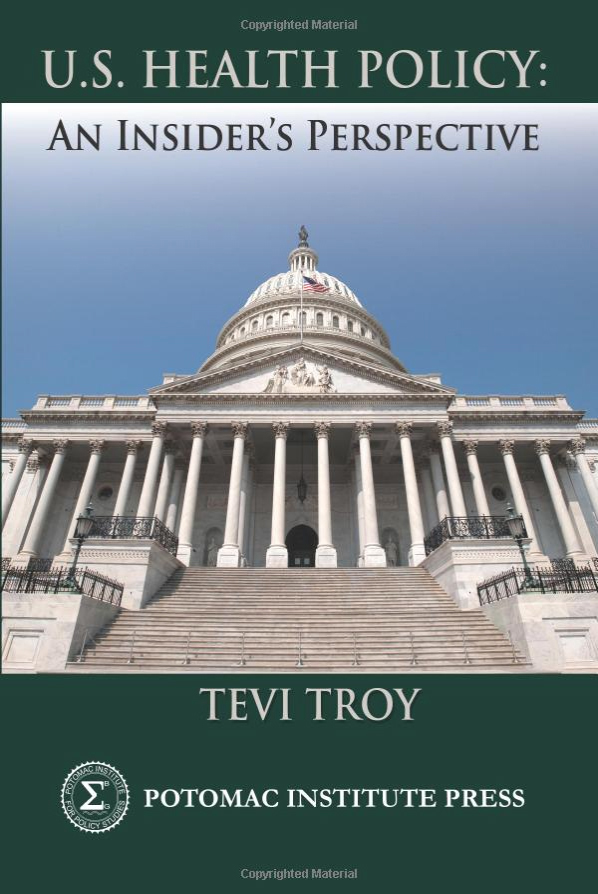




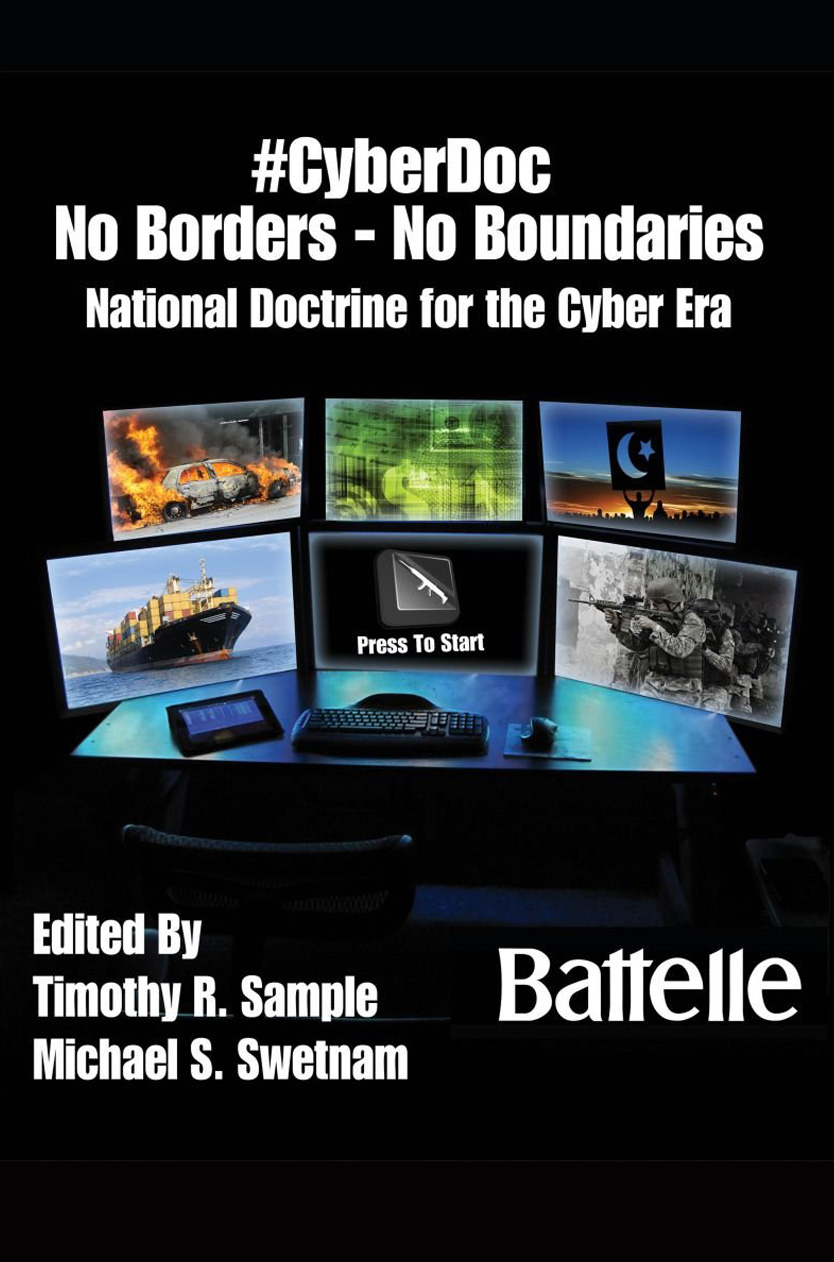
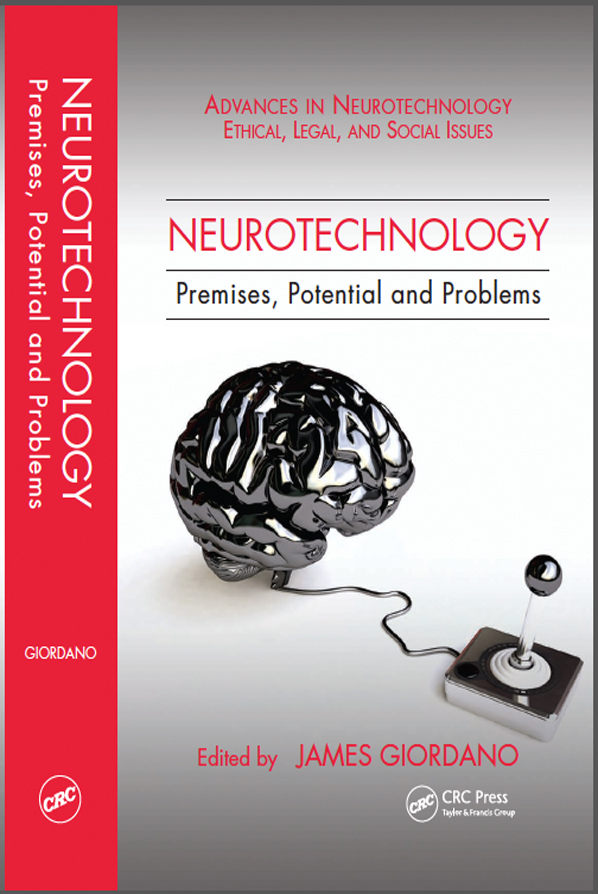










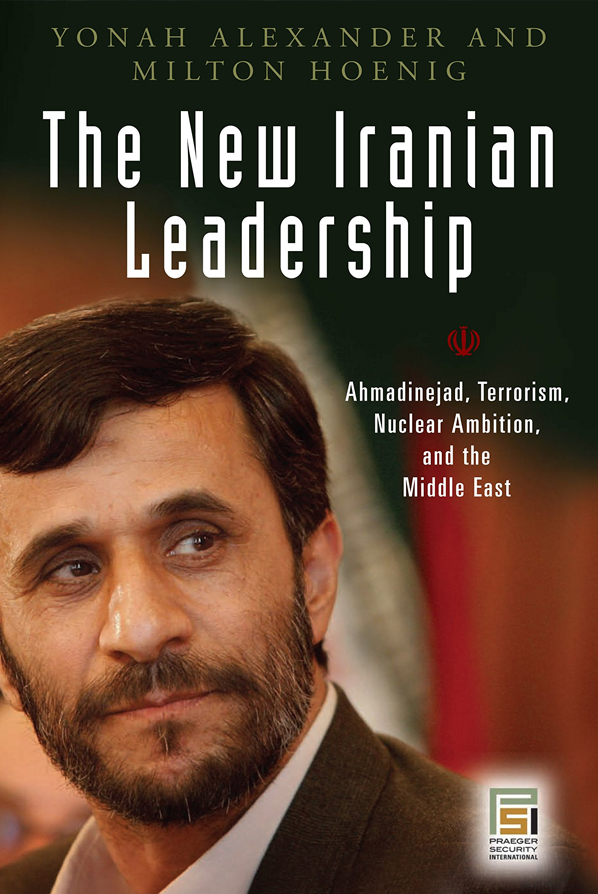

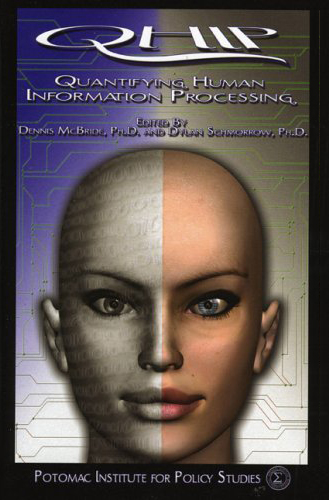
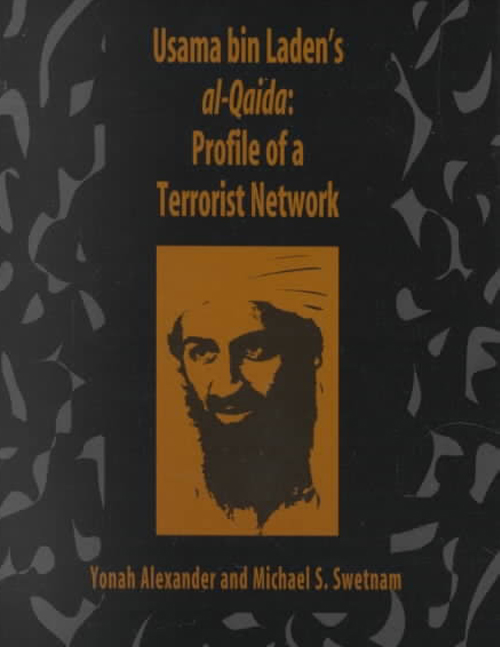






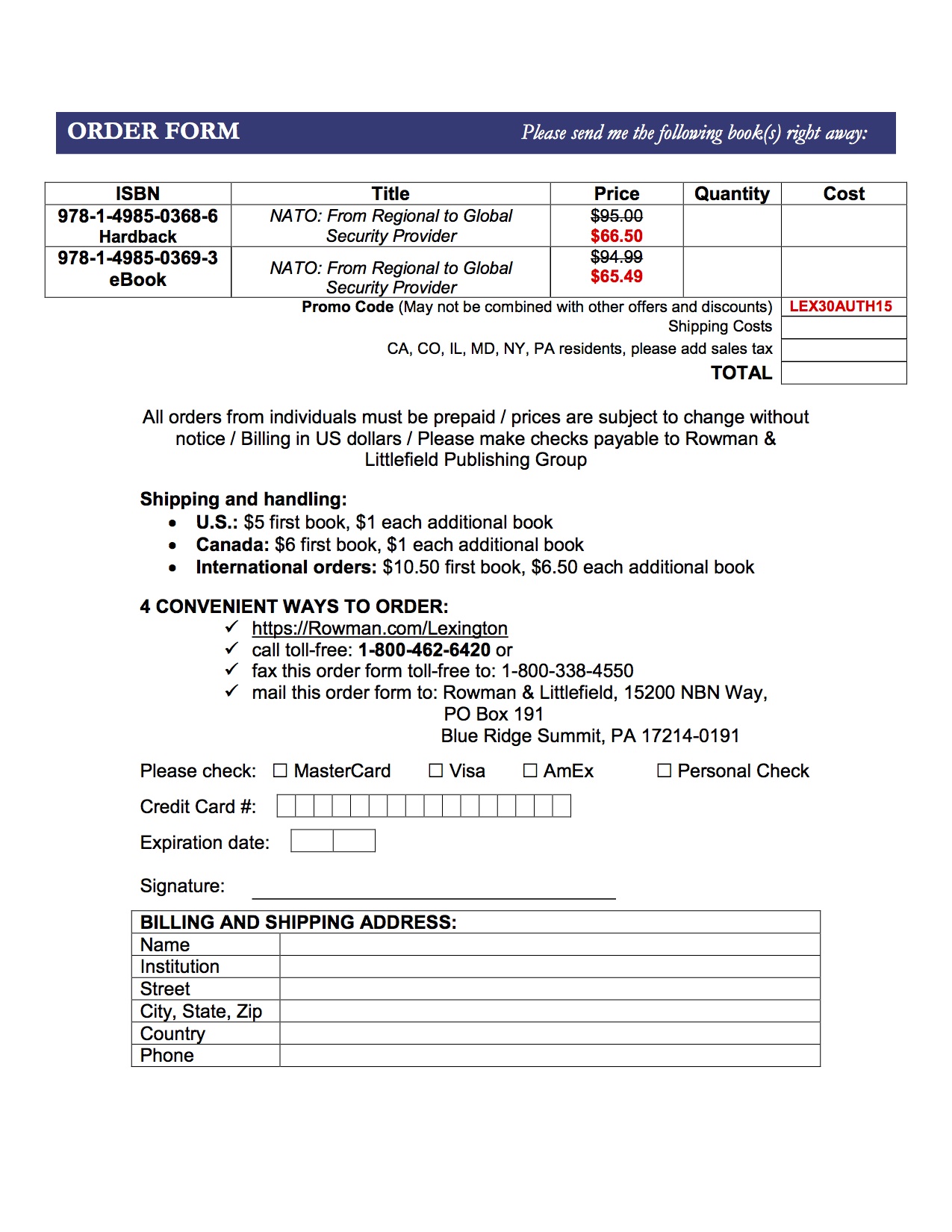
 The Potomac Institute for Policy Studies is pleased to present Alternative Futures for Corrosion and Degradation Research. This book, authored by study lead Dr. Robert Hummel, Chief Scientist of the Potomac Institute for Policy Studies, arose out of a study conducted for the Office of Corrosion Policy and Oversight (CPO) of the Office of the Secretary of Defense on research directions for alternative futures for corrosion and degradation.
The Potomac Institute for Policy Studies is pleased to present Alternative Futures for Corrosion and Degradation Research. This book, authored by study lead Dr. Robert Hummel, Chief Scientist of the Potomac Institute for Policy Studies, arose out of a study conducted for the Office of Corrosion Policy and Oversight (CPO) of the Office of the Secretary of Defense on research directions for alternative futures for corrosion and degradation.  The Potomac Institute Press is pleased to announce the latest book by Institute Chairman and CEO Michael Swetnam and ICTS Director Prof. Yonah Alexander, Al-Qa'ida: Ten Years After 9/11 and Beyond (Potomac Institute Press, 2012, ISBN: 978-0-9678594-6-0 Paperback, 454 pages). Orders for Al-Qa'ida, Ten Years After and Beyond may be placed through Amazon.com.
The Potomac Institute Press is pleased to announce the latest book by Institute Chairman and CEO Michael Swetnam and ICTS Director Prof. Yonah Alexander, Al-Qa'ida: Ten Years After 9/11 and Beyond (Potomac Institute Press, 2012, ISBN: 978-0-9678594-6-0 Paperback, 454 pages). Orders for Al-Qa'ida, Ten Years After and Beyond may be placed through Amazon.com. 


 The Potomac Institute for Policy Studies is pleased to recognize the latest book edited by VP for Academic Programs, Prof. James Giordano, PhD, entitled
The Potomac Institute for Policy Studies is pleased to recognize the latest book edited by VP for Academic Programs, Prof. James Giordano, PhD, entitled  This book, edited and written by leading scholars in the field(s) of neuroscience, ethics, law and healthcare policy, provides a unifying perspective of how a philosophical understanding of pain and medicine gives rise to the ethics and policies of pain care. Toward these ends, the chapters shed light on how pain and the experience of the patient and clinician establish the moral obligations of pain medicine, and the conditions necessary to enact pain care on a global scale. In this context, the authors consider possible ethical systems and approaches that are important to, and viable for pain medicine, and provide perspectives into the ways that moral obligations and practical realties are wedded to (and should underscore) any and all practice guidelines, health policy, and laws. In these ways, this volume provides erudite discussions of how contemporary knowledge of pain could and should influence the moral values, and conduct, tenor and value(s) of medical practice, and how this knowledge might serve as a foundation upon which to construct policies toward a more meaningful, patient-centered pain medicine in the future.
This book, edited and written by leading scholars in the field(s) of neuroscience, ethics, law and healthcare policy, provides a unifying perspective of how a philosophical understanding of pain and medicine gives rise to the ethics and policies of pain care. Toward these ends, the chapters shed light on how pain and the experience of the patient and clinician establish the moral obligations of pain medicine, and the conditions necessary to enact pain care on a global scale. In this context, the authors consider possible ethical systems and approaches that are important to, and viable for pain medicine, and provide perspectives into the ways that moral obligations and practical realties are wedded to (and should underscore) any and all practice guidelines, health policy, and laws. In these ways, this volume provides erudite discussions of how contemporary knowledge of pain could and should influence the moral values, and conduct, tenor and value(s) of medical practice, and how this knowledge might serve as a foundation upon which to construct policies toward a more meaningful, patient-centered pain medicine in the future.
 by Ben Sheppard, Ph.D.
by Ben Sheppard, Ph.D.
